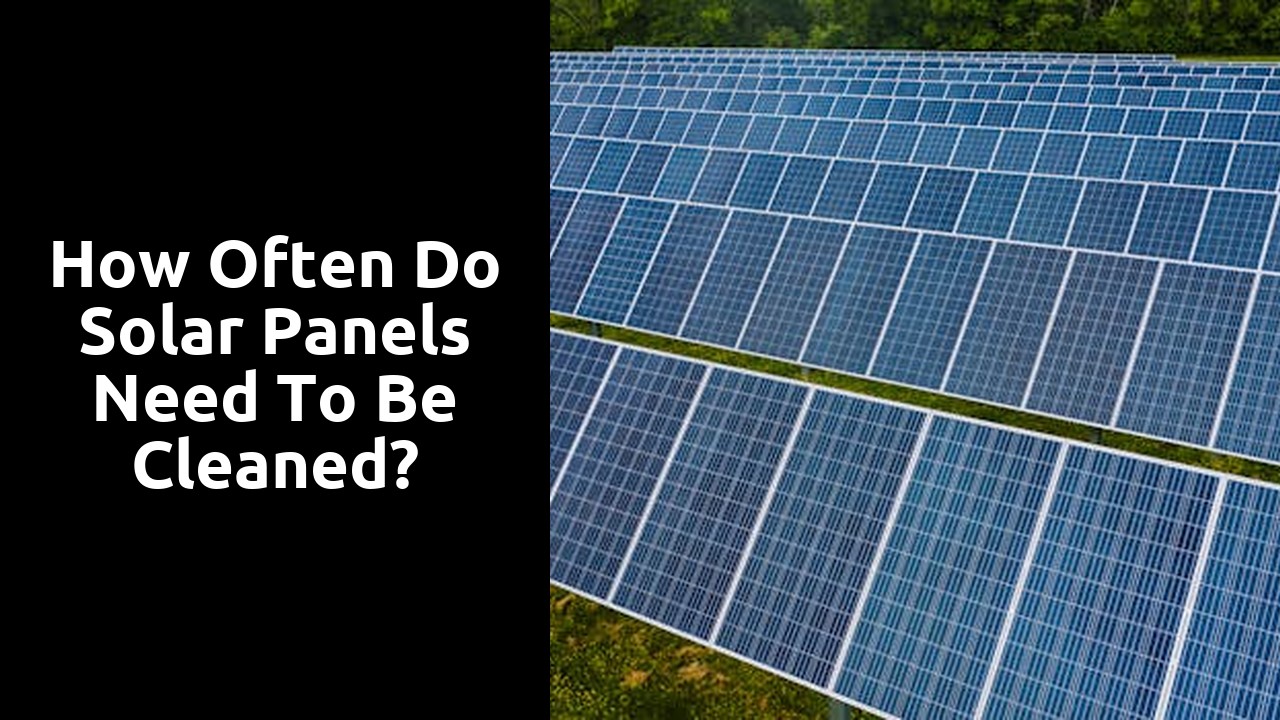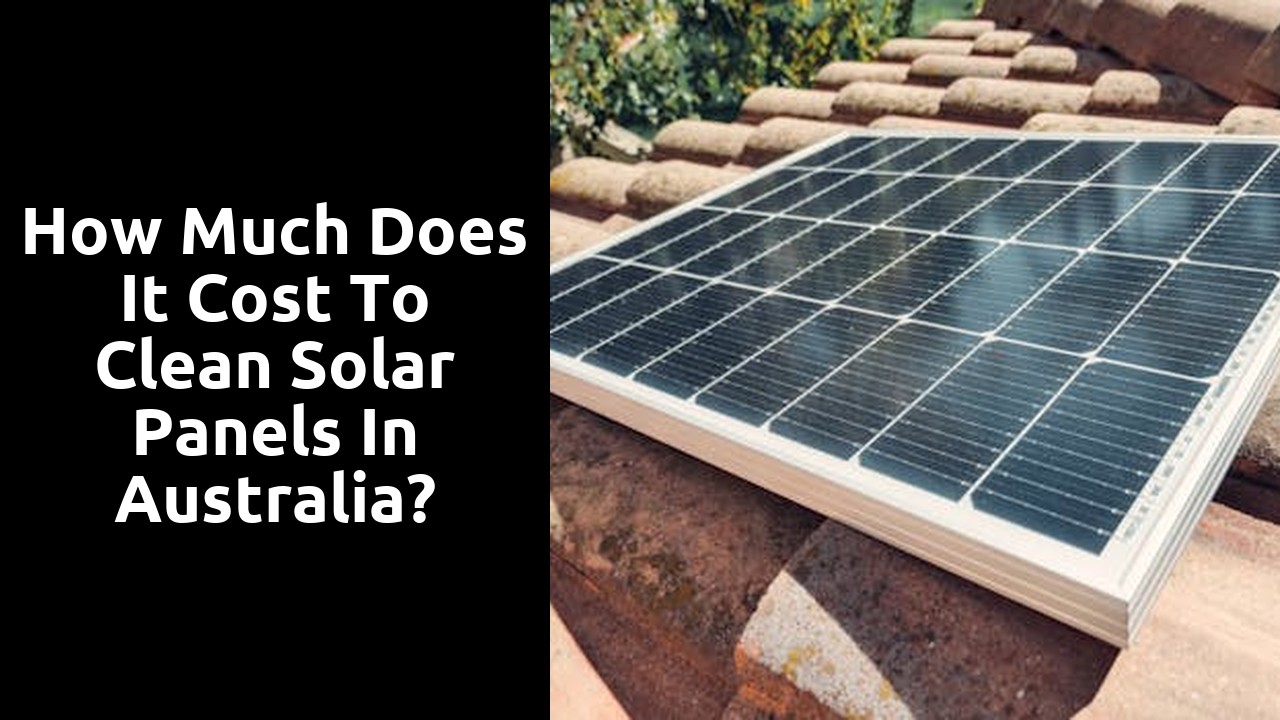
DIY vs. Professional Solar Panel Cleaning
When it comes to Solar Panel Cleaning, homeowners often find themselves debating between tackling the task themselves or hiring a professional service. DIY cleaning can be a cost-effective option for those who have the time and necessary equipment. It allows individuals to maintain their solar panels regularly without incurring additional expenses. On the other hand, professional cleaning services bring expertise and specialised tools to ensure a thorough and efficient cleaning process. While this option may involve higher costs, it can provide peace of mind knowing that the solar panels are being cleaned by professionals with experience in handling such tasks.
Pros and Cons of Each Approach
When it comes to Solar Panel Cleaning, there are advantages and disadvantages to both DIY and professional approaches. Opting to clean your solar panels yourself can save money and give you a sense of satisfaction. However, DIY cleaning may not always be as thorough or effective as professional cleaning, which can lead to decreased efficiency in energy production over time. On the other hand, hiring professionals ensures a more comprehensive cleaning job, utilizing specialized equipment and expertise to maximize the panels' performance. But the cost of professional services can be a deterrent for some, making DIY cleaning a more budget-friendly option.
Both DIY and professional Solar Panel Cleaning methods have their own set of pros and cons. DIY cleaning allows for greater control over the process and scheduling, enabling you to clean the panels as frequently as you deem necessary. Nonetheless, professional cleaning services offer a hassle-free solution, saving you time and effort while ensuring that the panels are cleaned properly and safely. It is important to weigh the benefits and drawbacks of each approach to determine the most suitable option for maintaining the efficiency and longevity of your solar panels.
Impact of Weather Conditions on Solar Panel Cleaning
Different weather conditions can have a significant impact on the frequency and effectiveness of solar panel cleaning. In regions with high levels of dust, such as arid areas or locations near construction sites, panels may accumulate dirt quickly and require more frequent cleaning to maintain optimal performance. Conversely, rainy climates may help rinse off some of the dirt and debris, reducing the need for frequent manual cleaning.
Extreme weather conditions, such as heavy storms or snowfall, can also affect the cleanliness of solar panels. Heavy rain can wash away accumulated dirt but may also leave behind water spots that can affect the panels' efficiency. Additionally, snow can cover the panels and prevent sunlight from reaching the photovoltaic cells, reducing their ability to generate electricity. Understanding how different weather patterns impact Solar Panel Cleaning can help solar panel owners determine the most suitable cleaning schedule to ensure maximum efficiency and longevity of their solar power system.
Cleaning Frequency in Different Climates
When it comes to determining how often solar panels need cleaning in various climates, factors like rainfall, humidity levels, and air quality play a significant role. In regions with frequent rainfall or high humidity, solar panels may require less frequent cleaning due to natural wash-off of dust and debris. However, in arid climates or areas with limited rainfall, dust and dirt may accumulate quickly on the panels, necessitating more regular cleaning to optimize energy efficiency.
In areas prone to strong winds or dust storms, solar panel cleaning may be required more often to ensure optimal performance. The buildup of dirt and debris from these weather conditions can reduce the panels' ability to absorb sunlight efficiently. Therefore, it is essential for solar panel owners in such climates to monitor the cleanliness of their panels regularly and schedule cleaning sessions as needed to maintain peak performance.
Safety Precautions for Cleaning Solar Panels
When it comes to ensuring your solar panel system operates efficiently, regular maintenance and cleaning are essential tasks to undertake. To safely clean your solar panels, consider the following precautions. Firstly, before starting the cleaning process, always ensure that the solar panels are turned off to prevent any electrical accidents. It is imperative to unplug any cables connected to the panels while performing solar panel cleaning to eliminate the risk of electric shock.
Moreover, it is crucial to wear appropriate protective gear such as gloves and safety glasses to shield yourself from any potential harm. Additionally, ensure that the cleaning materials used are non-abrasive and recommended for solar panel cleaning to avoid damaging the panels. By taking these safety precautions into account, you can maintain the longevity and efficiency of your solar panel system effectively.
Steps to Ensure a Safe Cleaning Process
When conducting Solar Panel Cleaning, safety should be a top priority. To ensure a safe cleaning process, make sure to first turn off the solar panels to prevent any electrical accidents. Additionally, always wear appropriate personal protective equipment, such as gloves and safety glasses, to protect yourself from any potential harm. It is also advisable to work on solar panel cleaning during cooler parts of the day to prevent burns from hot panels.
When it comes to cleaning your solar panels, opt for using a gentle cleanser diluted in water and a soft brush or sponge to gently scrub away dirt and grime. Avoid using abrasive materials or harsh chemicals as they can damage the panels and reduce their efficiency. Lastly, remember to rinse the panels thoroughly with clean water to ensure that no residue is left behind that could interfere with their performance. By following these steps, you can safely clean your solar panels and keep them operating at their best.
FAQS
How often should solar panels be cleaned?
Solar panels generally need to be cleaned 1-2 times a year to ensure optimal performance. However, the frequency may vary depending on the climate and environmental factors.
What factors determine how often solar panels need to be cleaned?
The frequency of solar panel cleaning depends on the local climate, amount of dust and dirt accumulation, presence of bird droppings, and any shading that may affect sunlight exposure.
Should I clean my solar panels myself or hire a professional?
You can choose to clean your solar panels yourself or hire a professional cleaning service. Both approaches have their own pros and cons, so consider your comfort level and the accessibility of your solar panels before making a decision.
What are the advantages of DIY solar panel cleaning?
DIY solar panel cleaning can save you money, allow you to schedule cleanings at your convenience, and give you a hands-on understanding of your solar panel system.
What are the disadvantages of DIY solar panel cleaning?
DIY solar panel cleaning may pose safety risks, require time and effort, and may not always result in a thorough cleaning compared to professional services.
How do weather conditions impact the frequency of solar panel cleaning?
Areas with high levels of dust, pollen, or bird activity may require more frequent cleaning compared to regions with lower levels of environmental debris.
How often should solar panels be cleaned in different climates?
In areas with heavy rainfall or strong winds, solar panels may require cleaning less frequently compared to dry and dusty regions where regular cleaning is essential for optimal performance.
What safety precautions should be taken when cleaning solar panels?
When cleaning solar panels, always ensure that the panels are cool, use appropriate cleaning materials, work on a stable surface, and avoid using abrasive tools that could damage the panels.
What steps can be taken to ensure a safe cleaning process for solar panels?
To safely clean solar panels, start by turning off the system, use a soft brush or sponge with soapy water, rinse thoroughly with clean water, and avoid using high-pressure water or harsh chemicals that could harm the panels.
